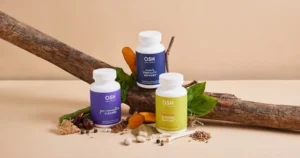
If you’re planning to introduce a new ingredient into your dietary supplement formula for the U.S. market, the FDA NDI notification requirements are something you can’t afford to overlook. Failing to notify the FDA properly can result in regulatory action, rejected products, and disrupted business plans.
To help businesses like yours navigate these rules more confidently, the FDA has just released new educational materials including a downloadable fact sheet and two YouTube videos that explain the NDI notification process in simple terms. Keep reading to understand how this update affects you and how to stay compliant.
What is an NDI and why does it matter?
A new dietary ingredient (NDI) is any ingredient that was not marketed in the United States as a dietary ingredient before October 15, 1994. If your supplement contains one, you’re required to submit a New Dietary Ingredient Notification (NDIN) to the FDA at least 75 days before you introduce the product to market.
This process allows the FDA to assess the safety of the ingredient before it reaches consumers. While it’s meant to ensure public health, many businesses overlook or misunderstand the requirements, leading to avoidable regulatory trouble.
What’s new in the FDA’s educational materials?
To improve industry understanding and increase compliance, the FDA has released a plain-language fact sheet outlining the NDI notification process and two short videos explaining who must submit a notification and what the process involves.
These resources aim to support small and mid-sized businesses who may not have the legal teams or regulatory expertise of larger corporations. If you’ve ever felt lost in technical documentation, these tools were made with you in mind.
Common compliance mistakes to avoid
Many companies mistakenly believe that if their ingredient is “natural” or used in other markets, they don’t need to notify the FDA. That’s incorrect. Even widely consumed ingredients like turmeric or collagen may require a notification if used in a new form or dosage.
Another frequent misstep is assuming that contract manufacturers or suppliers will handle the submission. While they can assist, the brand owner is ultimately responsible for ensuring compliance.
Finally, some businesses submit incomplete or late notifications, which can result in delays or enforcement action.
How to meet NDI requirements correctly
Staying compliant doesn’t have to be overwhelming. Here’s a simplified path forward:
- First, determine if your ingredient qualifies as an NDI. If it was not marketed in the U.S. before October 15, 1994, it likely qualifies.
- Prepare a complete notification. Include safety data, identity information, and a full description of the ingredient and its use.
- Submit at least 75 days in advance. The clock starts once the FDA confirms receipt, not when you send it.
What if you don’t submit an NDIN?
If you fail to submit a required NDIN, the FDA may consider your product adulterated. This could lead to warning letters, import refusals, product seizures, or even recalls.
But the good news is: compliance is within reach. With the right guidance and support, you can meet FDA requirements and protect your business. That’s where we come in.
How Quality Smart Solutions can help
At Quality Smart Solutions, we provide expert advice on new dietary ingredients, full dossier preparation for New Dietary Ingredient Notifications, and fast support for FDA pre-submission meetings and responses to FDA questions.
The FDA’s new fact sheet and videos are a welcome step toward making the NDI process more transparent and manageable. But as helpful as these materials are, regulatory submissions still require expertise and attention to detail.
If you’re planning to launch a dietary supplement with a new ingredient, don’t take unnecessary risks. Contact us to ensure your FDA NDI notification is handled correctly so you can bring your product to market with confidence.








